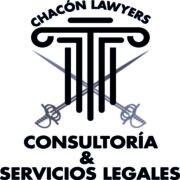Best Oil, Gas & Energy Lawyers in Bogota
Share your needs with us, get contacted by law firms.
Free. Takes 2 min.
List of the best lawyers in Bogota, Colombia
About Oil, Gas & Energy Law in Bogota, Colombia
The oil, gas, and energy sector is a cornerstone of Colombia's economy, with Bogota serving as a central hub for both regulatory oversight and industry operations. Colombia is one of Latin America's leading oil and natural gas producers, and its capital city is home to key government agencies, major industry players, and specialized legal professionals. The legal framework governing oil, gas, and energy activities in Colombia establishes comprehensive rules for exploration, production, commercialization, environmental protection, and investment. Navigating this complex system requires a solid understanding of applicable laws, administrative procedures, and regulatory requirements, especially in a city as influential as Bogota.
Why You May Need a Lawyer
Legal guidance is essential when dealing with oil, gas, and energy matters in Bogota. Here are some common situations where professional legal support is necessary:
- Negotiating exploration and production contracts with the government or private entities
- Assisting with permits, licenses, and regulatory compliance for energy projects
- Handling environmental assessments and ensuring adherence to sustainability requirements
- Managing disputes related to land use, royalties, and joint ventures
- Advising on mergers, acquisitions, or divestitures involving energy assets
- Ensuring compliance with local content regulations and procurement rules
- Addressing tax, customs, or tariff issues pertinent to energy operations
- Responding to administrative inspections or enforcement actions from government bodies
Engaging a lawyer with expertise in Colombia's oil, gas, and energy sector can help mitigate risks, unlock business opportunities, and efficiently resolve disputes.
Local Laws Overview
Colombia has developed a robust legal framework to regulate oil, gas, and energy activities, with a strong focus on environmental protection, investor participation, and public interest. The main aspects of these laws include:
- Hydrocarbons Law: The Colombian Hydrocarbons Law sets the basis for exploration, production, and commercialization of oil and gas resources. The National Hydrocarbons Agency (ANH) is the main regulatory body overseeing contracts and permits.
- Environmental Regulation: Environmental protection is enforced by the Ministry of Environment and regional entities. Projects must comply with Environmental Impact Assessments (EIA) and obtain relevant permits before operations can begin.
- Electricity Law: Law 143 of 1994 and its amendments regulate electricity generation, transmission, distribution, and commercialization, encouraging competition and private sector involvement.
- Foreign Investment: Foreign investors enjoy equal legal treatment and can participate freely in the sector, subject to regulatory and tax obligations.
- Land and Community Relations: Companies must engage with local communities and respect property and consultation rights, especially for indigenous and Afro-Colombian populations.
- Taxation and Royalties: Specific taxes and royalties must be paid to national and local governments, influencing project economics and contract negotiations.
- Health and Safety: Strict standards exist to protect workers and communities, with mandatory compliance and oversight by government agencies.
Failure to comply with these requirements can lead to fines, legal proceedings, and loss of operational licenses.
Frequently Asked Questions
What government agencies regulate oil, gas, and energy in Bogota?
The National Hydrocarbons Agency (ANH), Ministry of Mines and Energy, and the Ministry of Environment are the main regulators for oil, gas, and energy activities in Bogota.
Can foreign companies operate in Colombia’s oil and gas sector?
Yes, foreign companies can operate in Colombia and participate in bidding rounds and contract awards, subject to compliance with Colombian law and regulatory requirements.
Are there special taxes or royalties on oil and gas production?
Yes, oil and gas producers must pay both standard corporate taxes and sector-specific royalties based on production levels, as well as other applicable levies.
What is the process for obtaining exploration or production rights?
Rights are typically obtained through public bidding rounds organized by the ANH or through special contracts. Applicants must meet technical and financial criteria and comply with regulatory procedures.
How are environmental concerns addressed in new projects?
All new projects must conduct Environmental Impact Assessments and secure permits from environmental authorities, ensuring operations meet national and local sustainability standards.
What role do local communities play in project development?
Law requires prior consultation with indigenous and Afro-Colombian communities whenever a project may impact their territories. Community engagement is crucial for legal compliance and project success.
Can energy assets be bought or sold freely?
Generally, yes, but transactions involving energy assets must comply with regulatory approvals, due diligence, and notification to relevant authorities.
What are the risks of non-compliance with energy regulations?
Risks include administrative penalties, revocation of permits, litigation, reputational damage, and financial losses.
Is renewable energy regulated differently than oil and gas?
Renewable energy projects are subject to distinct regulations encouraging investment and innovation, but must also comply with environmental and operational requirements.
How can I resolve a dispute with a government agency or another company?
Disputes can often be resolved through negotiation, mediation, or administrative appeal. Litigation before local courts or international arbitration may also be options depending on the nature of the conflict.
Additional Resources
- National Hydrocarbons Agency (ANH): Main authority for oil and gas regulation and contract management.
- Ministry of Mines and Energy: Governs overall energy policies, including hydrocarbons and electricity.
- Ministry of Environment: Regulates environmental compliance and project approvals.
- Energy Regulatory Commission (CREG): Oversees electricity and natural gas market operations.
- Regional Environmental Authorities (CAR, CRA): Enforce environmental rules at the local level.
- Trade associations such as the Colombian Petroleum Association (ACP): Offer industry information and networking.
- Chambers of Commerce: Provide business registration and legal support services.
- Legal aid clinics and professional associations of lawyers in Bogota specializing in energy law.
Next Steps
If you require legal help in the oil, gas, and energy sector in Bogota, consider taking the following steps:
- Identify your specific legal needs, such as contract negotiation, regulatory compliance, dispute resolution, or permits.
- Collect all relevant documents and information related to your project or concern.
- Research and select a lawyer or law firm with proven experience in Colombia’s energy sector.
- Schedule an initial consultation to discuss your case, evaluate your options, and develop a legal strategy.
- Stay informed about ongoing legal and regulatory developments that could impact your interests.
Legal professionals in Bogota are equipped to guide you through each stage of the process, helping you operate effectively and confidently in the complex oil, gas, and energy industry.
Lawzana helps you find the best lawyers and law firms in Bogota through a curated and pre-screened list of qualified legal professionals. Our platform offers rankings and detailed profiles of attorneys and law firms, allowing you to compare based on practice areas, including Oil, Gas & Energy, experience, and client feedback.
Each profile includes a description of the firm's areas of practice, client reviews, team members and partners, year of establishment, spoken languages, office locations, contact information, social media presence, and any published articles or resources. Most firms on our platform speak English and are experienced in both local and international legal matters.
Get a quote from top-rated law firms in Bogota, Colombia — quickly, securely, and without unnecessary hassle.
Disclaimer:
The information provided on this page is for general informational purposes only and does not constitute legal advice. While we strive to ensure the accuracy and relevance of the content, legal information may change over time, and interpretations of the law can vary. You should always consult with a qualified legal professional for advice specific to your situation.
We disclaim all liability for actions taken or not taken based on the content of this page. If you believe any information is incorrect or outdated, please contact us, and we will review and update it where appropriate.













